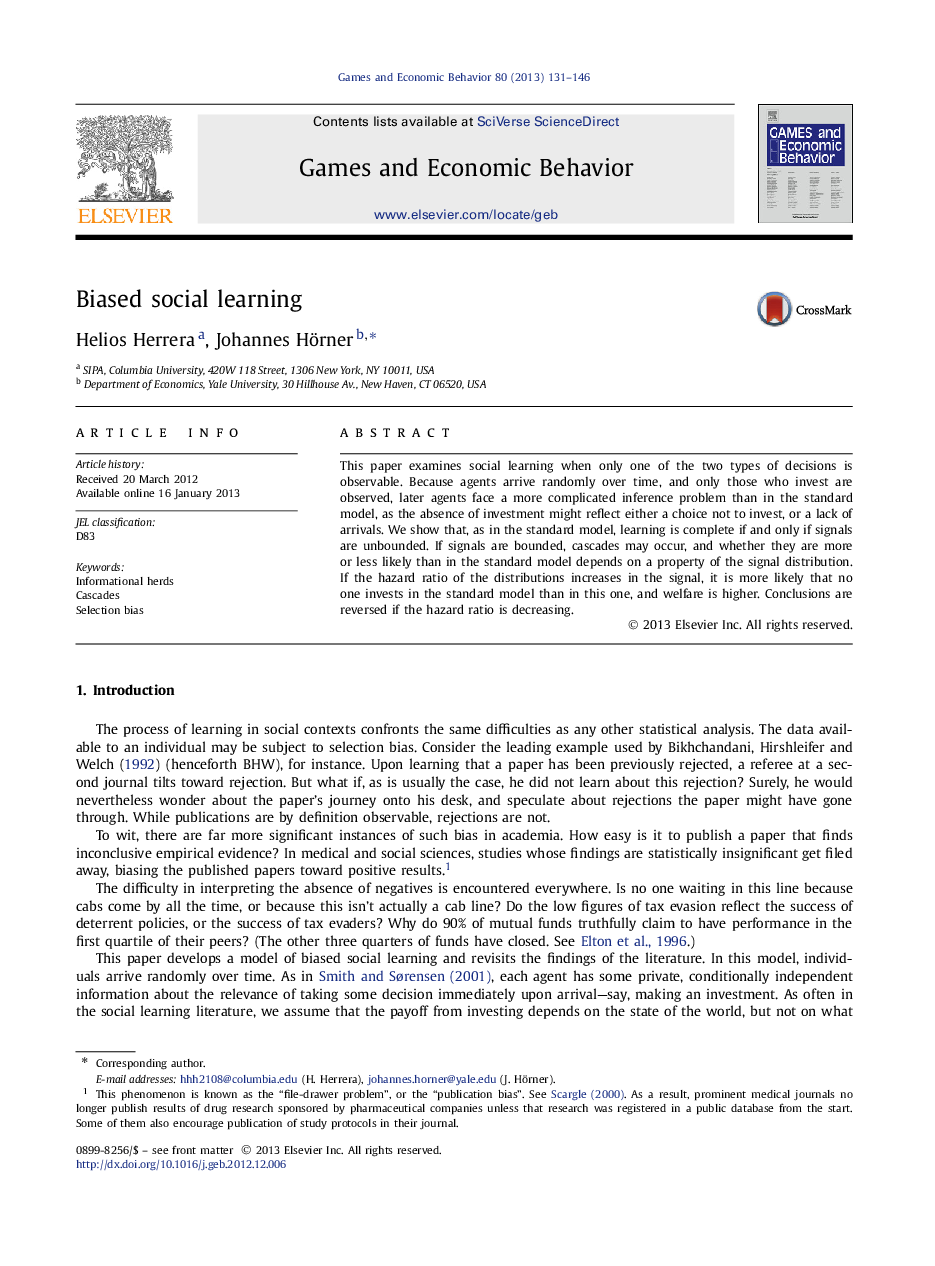| Article ID | Journal | Published Year | Pages | File Type |
|---|---|---|---|---|
| 5071807 | Games and Economic Behavior | 2013 | 16 Pages |
This paper examines social learning when only one of the two types of decisions is observable. Because agents arrive randomly over time, and only those who invest are observed, later agents face a more complicated inference problem than in the standard model, as the absence of investment might reflect either a choice not to invest, or a lack of arrivals. We show that, as in the standard model, learning is complete if and only if signals are unbounded. If signals are bounded, cascades may occur, and whether they are more or less likely than in the standard model depends on a property of the signal distribution. If the hazard ratio of the distributions increases in the signal, it is more likely that no one invests in the standard model than in this one, and welfare is higher. Conclusions are reversed if the hazard ratio is decreasing.
